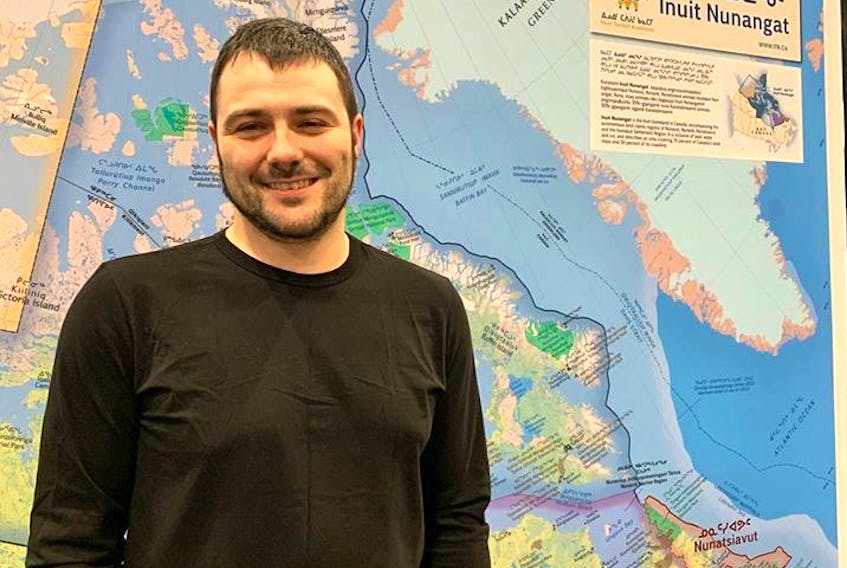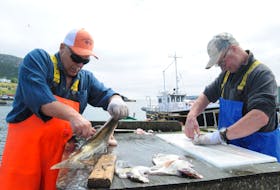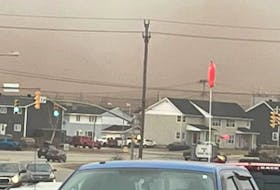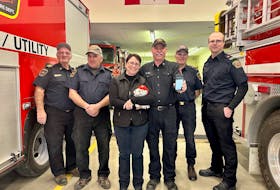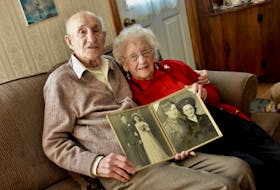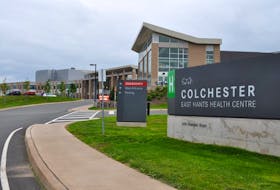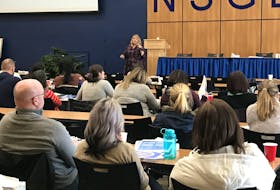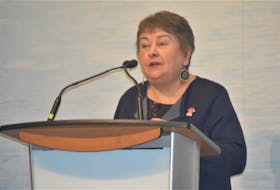HAPPY VALLEY-GOOSE BAY, N.L. — Dr. Robert Way of Happy Valley-Goose Bay has been recognized for his significant contribution to Inuit Nunangat research.
Members of the ArcticNet Inuit Advisory Committee presented Way with the 2019 Inuit Recognition Award at its annual scientific meetings held in Halifax, N.S. earlier this month.
Way is an Inuk, born and raised in Happy Valley-Goose Bay, Labrador.
He has been conducting research in Nunatsiavut for more than a decade.
For his master’s work, he studied glaciers in the Torngat Mountains while his doctorate research focused on the relationship between permafrost and vegetation.
Canadian Permafrost Association president Antoni G. Lewkowicz and Memorial University biology professor, Dr. Luise Hermanutz nominated Way for the award.
“Through his commitment to developing and implementing research projects with full and proper partnership with Inuit, Robert Way is helping to reshape the research dynamic in Inuit Nunangat,” Lewkowicz said in a press release.
“Academic researchers should take notice of the work that he is doing and learn from the way that he engages and works with Labrador Inuit,” he added.
Hermanutz is a plant ecologist. Retired from her position at MUN, she lives in British Columbia and continues to conduct research in this province.
Hermanutz started working with Way, on projects supporting research in the North, several years ago.
She describes him as an incredibly hard worker who is very focused on his goals.
He’s a pleasure to work with, she said.
“He’s a very persuasive guy. He’s very good at getting people to work together. He’s easy to work with and is able to cut across interdisciplinary barriers,” Hermanutz said during a phone interview.
Way has done amazing work, working within communities, she said. He has an extensive research collaboration network and is a great support to students.
Hermanutz said Way is great at outreach and is a mentor to youth in Labrador who are interested in pursuing science-based programs.
“He’s a great guy out in the field ... He’s easy to get along with. He’s incredibly smart and is able to look at problems from all different perspectives.”
Inuit Tapiriit Kanatami (ITK) is the national voice of Canada’s 65,000 Inuit. ITK works with ArcticNet to ensure that Inuit are well represented at ArcticNet's annual scientific meetings.
ITK president Natan Obed congratulated Way on his “well deserved recognition.”
“Through the leadership of researchers like Robert Way, we come closer to our goal of Inuit selfdetermination in research and we build our capacity to bring about substantive change in the policies and processes that determine our relationship with research in Canada,” Obed said in the release.
Way is assistant professor in the department of geography and planning at Queen’s University in Kingston, Ontario. In addition to his teaching assignments he continues research that’s conducted in Labrador, working closely with the local indigenous government and others with similar interests.
One research initiative saw him helping to set up weather stations along the Labrador coast in order for residents to get more reliable weather information.
“I’m trying to do the best job I can of maintaining that balance between being a Northerner working in the North and then trying to have a bit of an academic career as well,” he said.
There are others as well, Way said, who are entering the research world, tethering between working with communities to address northern priorities and trying to find their way in an academic system that’s not exactly defined for them.
“It’s a positive development that we have people going down that route and we will hopefully have more and more into the future.”
As for the award, Way said it’s a tremendous honour when people take the time to be involved in an award nomination process.
“This is not something I anticipated. It’s a humbling experience,” he said.

